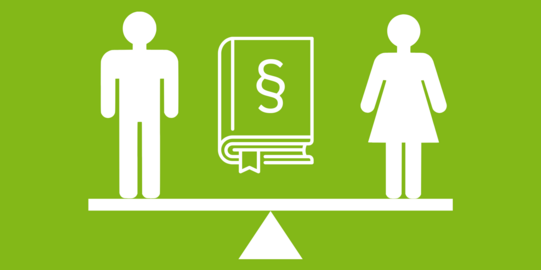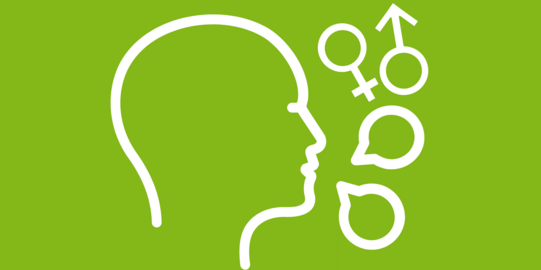How language reinforces stereotypical ideas
"Scientists discover highly effective drug." What associations does this headline trigger in you? Do you perhaps think of men in white coats developing new drugs in laboratories and applied test series? Perhaps you are also thinking of female researchers, as you are reading this text in the "Gender-equitable language" section. But would women have come to mind if you had read this headline in a daily newspaper? Probably not. According to various studies, female scientists would have1in this context - and for a good reason: our brain does not automatically distinguish between genus (the grammatical gender) and sex (the biological gender). As a result, the use of so-called generic formulations leads to inaccuracies regarding the subject of speech.
1 Cf. in summary Dagmar Stahlberg, Sabine Sczesny: "Effekte des generischen Maskulinums und alternativer Sprachformen auf den gedanklichen Einbezug von Frauen." In: Psychologische Rundschau, 52 (3), pp. 131-144, Göttingen: 2001.
Simple vs. exact
The above example makes it clear that the use of the generic masculine ("the scientists") does not include all genders. Formulations in generic forms are not suitable for accurately depicting reality. Rather, they give an incomplete or even distorted picture of actual events and generally perpetuate stereotypical and often antiquated ideas of gender roles. Although formulations in the generic masculine are the more common form of generalized and simple language, the use of the feminine as a generic form also harbours the danger of discrimination and role ascription. A headline such as "Female educators on strike again" does not sound unusual at first, as the majority of educational professions are carried out by women, but the generic wording systematically excludes male educators. This reinforces the idea of the educator profession as a purely female field of activity. People who do not fall into the binary categories of man or woman are usually still completely invisible in the German language.
We should be aware that we can use language to influence realities: We can use it to confirm and preserve existing patterns or question and change them. Language, just like our world, is always changing and new words are constantly flowing into our everyday vocabulary. Just as easily as we say 'googling' or 'surfing the net', we can talk about women, men and people without a binary gender assignment if we use language sensitively. This is because "thinking along" in traditional formulations does not automatically result in "thinking along". Ignoring this fact is no longer in keeping with the times. Accurate and non-discriminatory language helps us to not only depict one part of our reality; it captures all facets equally.
Recommendations of TU Dortmund University
TU Dortmund University sees itself as a university that lives and values diversity. For this reason, the Rectorate of TU Dortmund University recommends that its students and employees strive for inclusive and gender-equitable language. The Rectorate's letter of recommendation provides an overview of various options for gender-equitable language use and gives specific examples of use. The use of the gender star (*) is recommended, as it creates space for all gender identities. The Working Group Diversity has compiled suggestions for salutations and signatures for members of TU Dortmund University for gender-equitable language use in email communication to ensure that salutations are respectful.









